"Felt like a ticking time bomb:" Debilitating headaches led to shocking diagnosis for 23-year-old woman
Debilitating headaches leads to shocking diagnosis
Debilitating headaches leads to shocking diagnosis
MILWAUKEE -- A headache is uncomfortable at best, but if you've ever had a migraine, you know the pain can be debilitating. Cassidy Kraus described the pain as blinding, and constant. She knew something wasn't right, but she was only in her 20s, so how bad could things be?
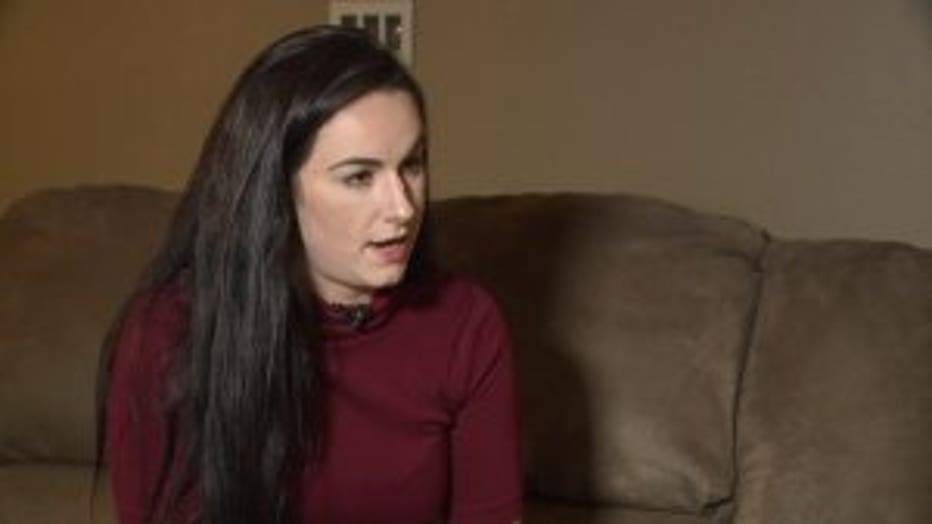
Cassidy Kraus
"I felt like a ticking time bomb a little bit," Kraus said.
The 23-year-old knew something wasn't right after suffering a concussion following a car accident three years ago. Doctors said she could expect some headaches, but nothing like this.
"I would kind of lose vision in my left eye and it would get blurry and I would get double eyed. It was just really odd. They were like, a really quick onset pain. They didn't gradually build. They were just there and they stayed and they were absolutely debilitating," Kraus said.
Her doctor at the time did a brain scan and found nothing. She figured she was still healing and a little rest and over-the-counter medication might help.
It didn't.
"It's like a sharp pain. I used to say, this sounds really morbid, but it was kind of like, I've never been shot, but like you were getting shot in the head," Kraus said.

Froedtert and the Medical College of Wisconsin
Desperate for some relief, she decided to get a second opinion, and went to Froedtert and the Medical College of Wisconsin.
"She had what was called 'Thunder Clap' headaches. She gets headaches that are coming out of no place, that are horribly severe, only last a brief period of time -- but she'll black out with them," Dr. Frederick Freitag said.
"I said 'this isn't getting any better. I'm really miserable.' And he said, 'you know what? Let's run some scans and see what happens,'" Kraus said.
What the scan found was something she never expected.
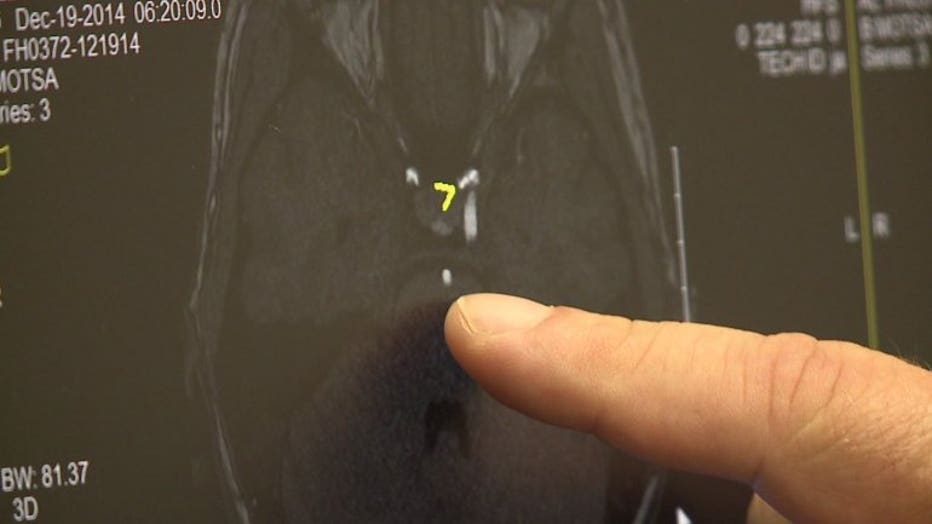
"I'll never forget that. It was December 19th. I remember getting a call. I answered it. It was the radiologist who initially read my scan. He goes 'hey, I need to talk to you. We found an aneurysm in your carotid artery behind your left eye in one of your scans.' I'm on the phone, I'm like shaking. I'm like, 'really?' The feelings just came rushing back. How I felt and being young," Kraus said.
Doctors wanted to operate right away.
"That's when I was like, 'oh wow, this really is serious,'" Kraus said.
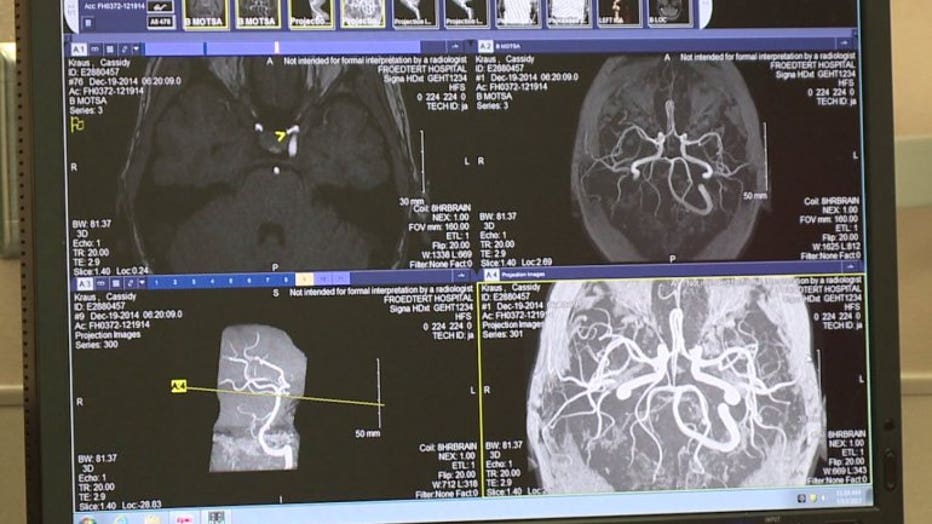
She had an "aneurysmial coiling," where a coil was placed at the site of the weakening of the blood vessel wall, otherwise known as an aneurysm.
"So in essence you create a new blood vessel wall, and so the risk is gone," Dr. Freitag said.
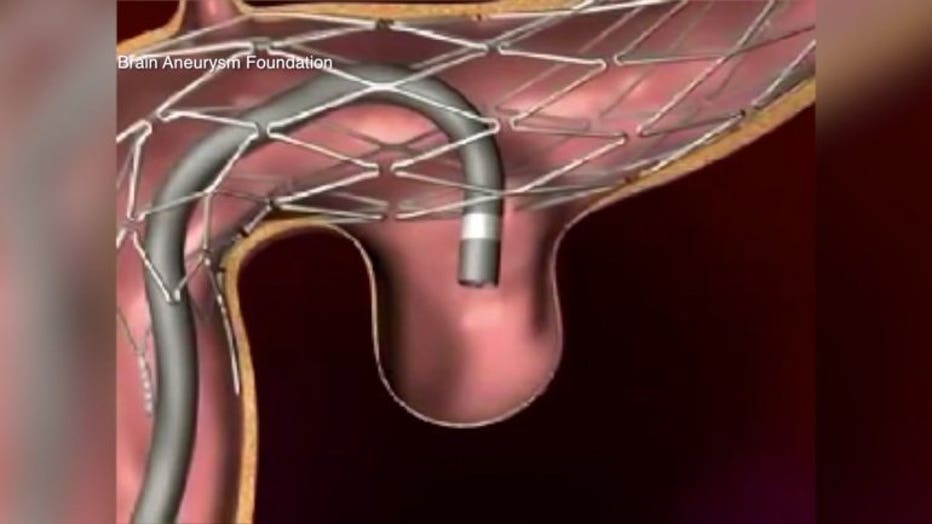
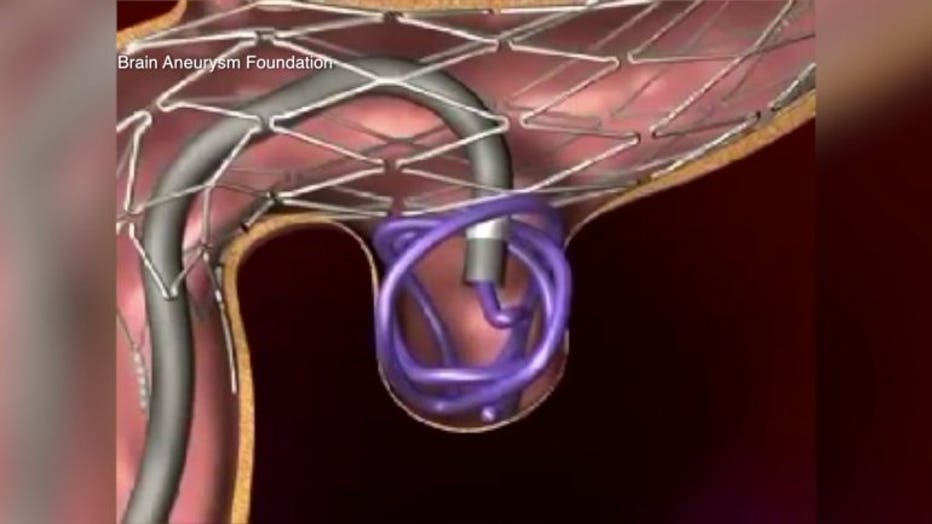
Kraus said her recovery was quick. She was in the hospital for less than a week, and before long, she was back to doing the things she loves, like cooking with her boyfriend Brett and playing with their dogs, who are blind.
She said now, her quality of life couldn't be better.
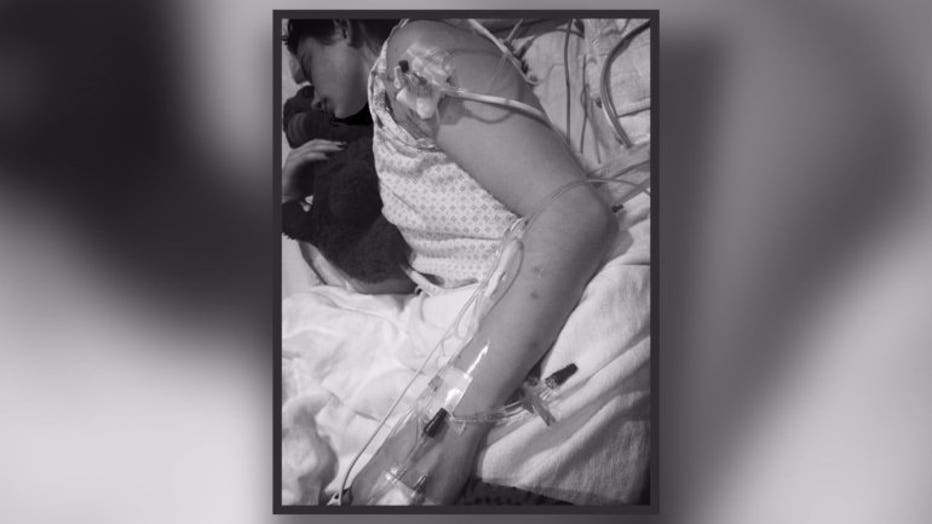
"I have done the best kind of 180. I remember thinking back then 'I'm going to be lucky if I graduate college.' I am 12 credits away from being done and that's a huge accomplishment for me. I've come a long way," Kraus said.

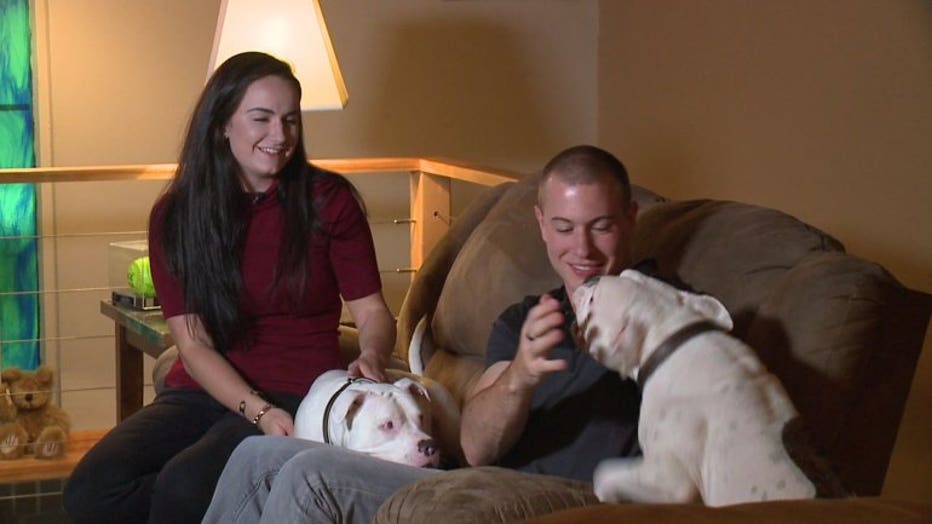
Kraus said she still gets headaches, but they're minor. A headache is a hallmark symptom of an aneurysm. If your headaches change or if they're not responding to medication, that should be a warning sign and you should see a doctor.
As it turned out, Kraus' aneurysm wasn't caused by the crash she was in. Doctors don't know why they develop, but they may be hereditary.

